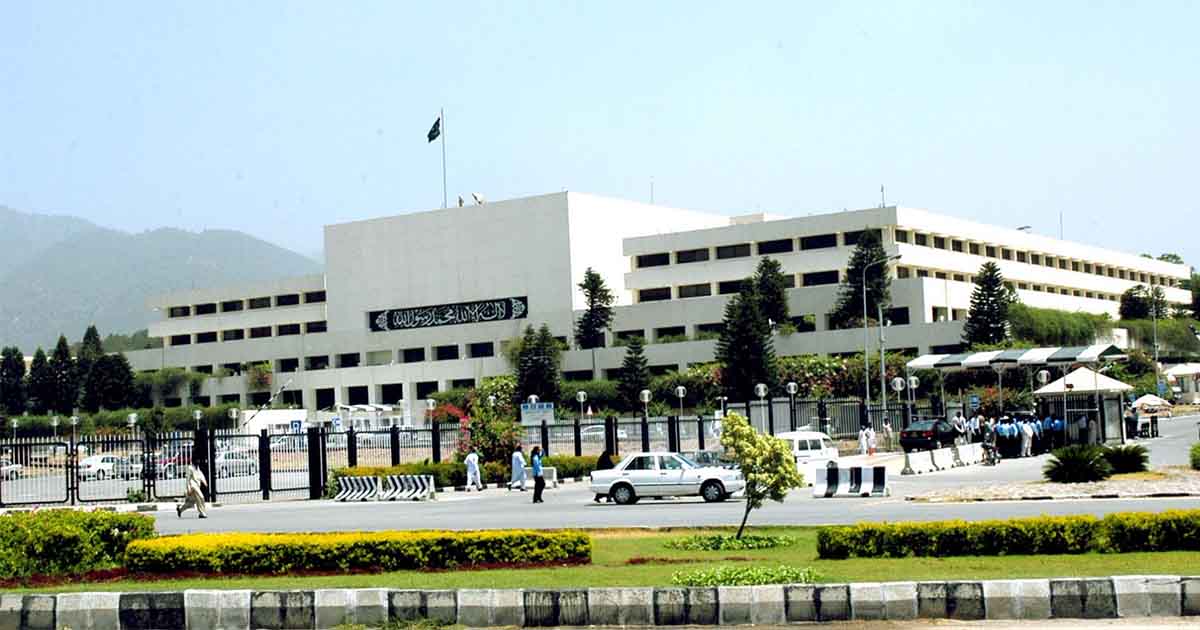What is the meaning of the term geo-economics that is often used by academia and policymakers? There is no solidarity on how to explain the term. Definitions include the geostrategic use of economic power, using “economic tools to advance geopolitical objectives”, achieving foreign policy outcomes by economic, not military, power projection, and “use of economic instruments to promote and defend national interests, and produce beneficial geopolitical results”. Some see geo-economics as statecraft that deploys geopolitical power and leverages geography to achieve economic ends.
The current PTI regime and Pakistan’s military establishment have decided to put the economy at the top of the country’s foreign policy agenda. The plan depends upon peace and stability, development and cooperation and connectivity.
Read more: An overview of Pakistan’s cyber security policies
Why are witnessing a change in foreign policy?
In bringing about this shift in foreign policy, the chief asset at Pakistan’s disposal is its newfound image as a future leader in Asia. Negotiating for peace and stability in Kabul is the first essential step towards constructing this soft image of Pakistan. Pakistan worked hard to bring the Taliban to the peace table. Pakistan’s stance on a ceasefire with India and a moral stance on Israel’s settlements consolidate it. There is no doubt Pakistan has become a critical regional player at this moment. Yet, there are numerous hurdles in the way of its geo-economic end goal.
Of these, the most important remains Pakistan’s local economy. Remittances are rising higher every month than the previous one, and exports are also getting increased. However, the country lacks sound but dynamic economic policies that combine demand and supply-side forces. By extension, the state needs to adopt a more attractive profile worldwide to attract investors and increase trade volume. Various studies have resulted there is an inverse interrelationship between vaporization and foreign direct investment (FDI). The State Bank restated this fact by asserting that FDI had decreased by 27% compared to last year in February 2021. It was partly caused by the political instability in the country experienced during the peak of the pandemic.
Several organizations feel that Pakistan has been unable to fulfill obligations to its citizens and the global community worldwide. The International organizations have deep concerns about Pakistan’s efforts towards eradication of terrorism. Although Pakistan worked hard and lost over 100$ dollars and 80 thousand people, Pakistan is still receiving. The world powers accepted the Indian propagation and blamed Pakistan for harboring terrorist sanctuaries. Pakistan is on the FATF grey list; although Pakistan has done exceptionally well, there is still a lot of work to bring Pakistan out from the grey list. Various money laundering cases are still pending in Pakistan’s courts; courts must play their part to fulfill the demands of FATF. Internal political instability is the main hurdle in the way of foreign direct investment (FDI).
Read more: Forbes lauds Pakistani policies amidst pandemic
What is Pakistan’s way forward?
In terms of geostrategic significance, few states in the world come close to Pakistan’s desired spot. The country possesses direct access to the warm waters of the Arabian Sea. It is the shortest route to the Indian Ocean for land-locked countries in Central Asia. Unfortunately, connectivity remains a challenge. CPEC has faced several delays due to Covid 19-related problems, a failure to set up special economic zones, and a lack of consent over tax exemptions for locals. Programs’ valuation of $12 billion remains incomplete. The Asian Development Bank also recently stated that crossing Pakistan’s borders is a costly and tiring exercise and, as a result, not beneficial for interconnectivity in the region.
The state of Pakistan wishes to use economic interdependence as a foreign policy tool like its neighbor in the north. But it must overcome a few of its deficiencies first. The most impactful solution will be planning to gravitate towards two crucial areas. Internally, the state must ensure the fundamental rights of citizens are guaranteed and the writ of the state ban any extremist conscience from extending their network. The need of the hour is a change from conventionalsecurity to human security. It will directly impact finances as more states will be willing to set up friendly ties with Pakistan, inevitably attracting investments.
Economically, the state needs a hybrid of demand and supply-side strategies with a devaluation in interest rates. Still, an increase in supply ensures the market remains competitive and exports are up to global levels. Bilateral trade pacts must take center stage as multilateral trade organizations like SAARC have mainly become defunct over the years. Lastly, breathing new life into the Pakistan railways is an essential stepping-stone in connecting the country with Tehran and Istanbul for both tourism and trade purposes.
Read more: IMF cannot dictate policies to institutions in Pakistan, Teresa Daban
Pakistan’s new and revised foreign policy seems like a logical shift. Trade is rapidly displacing military methods across the world to achieve national aims. However, foreign policy is a logical expansion of internal and economic policy. If you want to attain success in the former, it is crucial first to fix the latter.
The writer is a lecturer at the Department of International Relations, Government College University Faisalabad. The views expressed in the article are the author’s own and do not necessarily reflect the editorial policy














